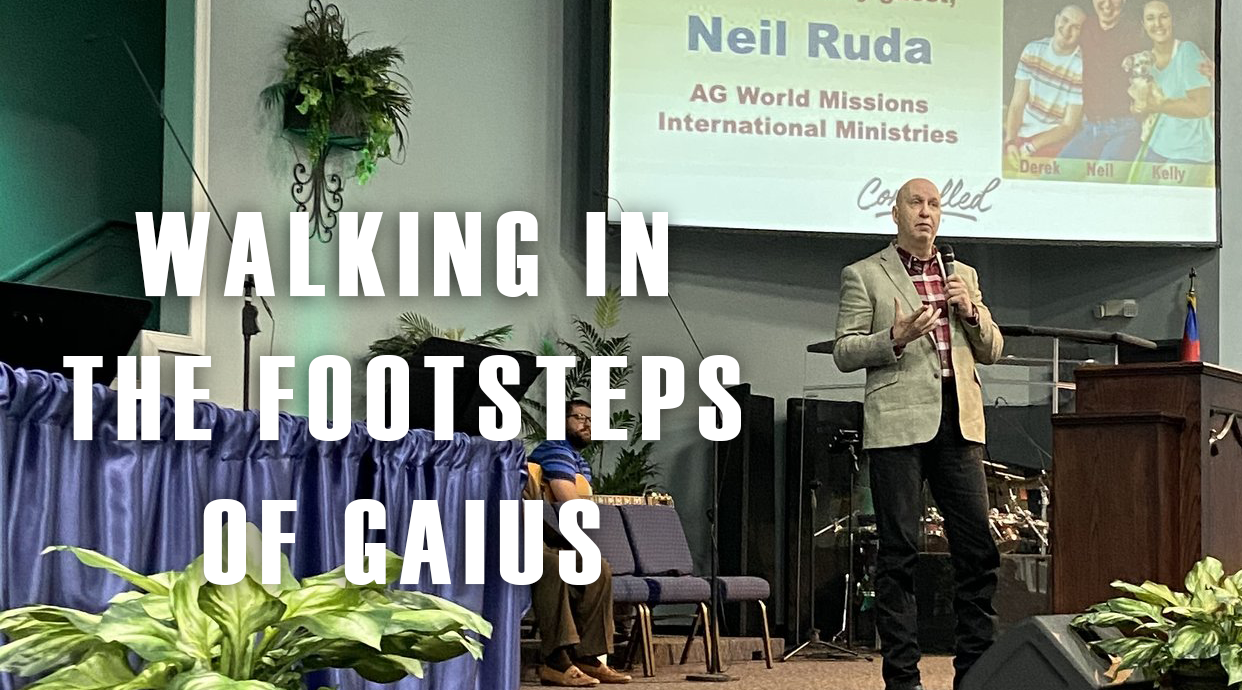
Ralph Winter, the late founder of the U.S. Center for World Mission (now Frontier Ventures), once stood before a group of college students and said, “Suppose I had a thousand college seniors in front of me who asked me where they ought to go to make a maximum contribution to Christ’s global cause. What would I tell them? I would tell them to stay home and mobilize. All of them.”1
Why did Ralph Winter, someone who did not stay home (prior to founding the U.S. Center for World Mission, he was a missionary to Guatemala), put such an emphasis on “staying home” and mobilizing? And what does it mean to “mobilize” for Christ’s global cause?

What is Missions Mobilization and Why is it Important?
Winter put a strong emphasis on missions mobilization because he was convinced that in his time there were thousands of young adults who sensed a call to give their lives as missionaries but due to a lack of education and resources, never fulfilled that call.2 These young adults needed the help of a missions mobilizer to navigate the process of seeing their call become reality. This is every bit as true today as it was in Winter’s lifetime.
Ryan Shaw, the President of Student Volunteer Movement 2, explains the role of missions mobilization when he says that a missions mobilizer is “an individual who sounds a rallying cry, working to see others in the body of Christ understanding, caring and becoming activated in their own roles in the Great Commission. They have seen and become convinced that God’s global mission purpose, a key thread in Scripture from Genesis to Revelation, is the primary purpose of the body of Christ between Jesus’ first and second coming. They then want to help others tap into this area of emphasis.”3
Missions Mobilization: A New Testament Church Practice
This ministry of missions mobilization actually has its roots in the practices of the New Testament church.
In the first century church, itinerant teachers, evangelists, church planters, etc. would travel between cities and build up believers in the churches, train them in ministry, and disciple the faithful. They were in many ways not unlike the missionaries of our day. And like the missionaries of today, these itinerant servants needed the support of the broader church.
But support in a first century context meant much more than simple financial assistance.
In the third epistle of John, we’re told of a brother named Gaius who John commends for receiving and supporting such itinerant teachers. And although some may consider him a minor character in the New Testament, in reality, he has much to teach us about how God’s plan for the nations comes to fruition through people.
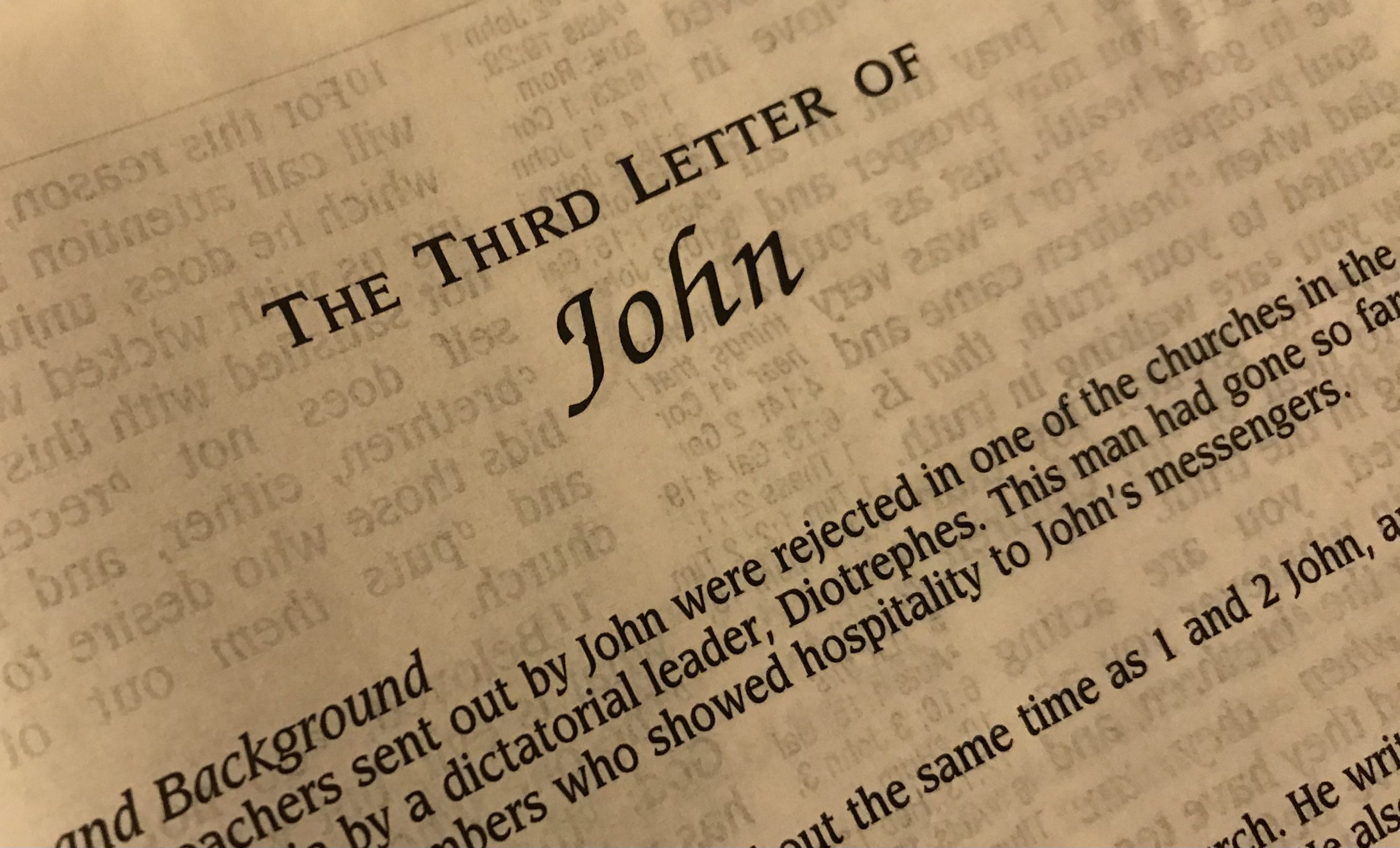
In the New Testament era, receiving strangers/travelers was much more involved than we might think. It wasn’t simply welcoming them or even providing them with food and a place to stay.
In the first century Mediterranean world, it was difficult for a stranger to travel to a new city.
Inns along the way were often not optimal places for these itinerant teachers to stay. These inns could be very dirty, even infested with insects and rodents. Inn-keepers might charge exorbitant prices. Thieves preyed on those who stayed at the inns. And many of these establishments were actually more brothels than hotels.4
And so, traveling Christian teachers would often depend on the hospitality of the church in a new city. But even in that, they faced a challenge.
In the first century, when a stranger arrived in a city, residents often treated them with suspicion, as a potential threat. Strangers had no standing in a city — either according to the city’s laws or its customs.5
A stranger needed a patron in a new city.
And so often, someone who knew the traveler sent letters of recommendation to a person in the city that the letter writer also knew (hoping the recipient would become the traveler’s patron).6
What First Century Missions Mobilizers Did
When the traveler arrived, the patron would:
- host and feed the traveler (and eating with the stranger signified an acceptance of them and a commitment to a close relationship going forward);
- introduce them to the appropriate people in the city and church and vouch for them;
- perform any services that the traveler might need that they wouldn’t be able to do on their own in the new city; and,
- send them on their way at the end of their visit (often with enough provisions to last them at least a day, sometimes even accompanying them on their journey for a distance).
And then they would no longer be strangers — because someone in the city had vouched for them.
If, however, the potential patron refused to receive the traveler, this dishonored the person who had recommended the traveler. The one who had been thus dishonored would either bear the shame of the refusal or seek satisfaction.7
It is against this backdrop that the story of 3 John plays out.
Gaius was such a patron.
Gaius: A Missions Mobilizer
Let’s dig a little deeper into 3 John and discover how Gaius facilitated the ministry of these itinerant teachers in his city.

We don’t have this letter any longer, but from verse 10, we can surmise that this was a letter of recommendation concerning a group of traveling teachers who John knew personally and who were traveling to the city where this church was located (we don’t know which city this was, but it seems likely that it would have been in Asia Minor).
Diotrephes was unwilling to receive these teachers — because he loved to “be first” within the church. He wanted to have the pre-eminent leadership position in the church, and he perceived that these itinerant teachers would be a threat to his perceived authority. He was so disturbed by this possibility that he told others in the church to not receive the teachers and threatened them with excommunication if they did.8
Gaius was different. He was a missions mobilizer.
Gaius’ story in 3 John teaches us what it means to be a mobilizer.
A missions mobilizer is:
- a lover of God’s servants. John says that the itinerant teachers whom Gaius received reported back to the church which presumably was their base of operations and testified of Gaius’ love.9
- a servant of others. Unlike Diotrephes, who always wanted to be first, Gaius consistently put others before himself. He faithfully accomplished valuable tasks on behalf of the traveling brothers and sisters.10
- a discerner of truth. Not only did the itinerant teachers testify of Gaius’ love, but they testified that he was walking in truth. He received those who were truth tellers but not the false teachers mentioned in 2 John.11
- a networker. Gaius acted as the patron of the itinerant teachers in his city. Given what we’ve learned about receiving strangers in the first century, we can confidently assume that Gaius introduced these teachers to people within and outside the church — and that he vouched for them (based on John’s letter of recommendation).
- a supporter of missionaries. Gaius recognized that the itinerant teachers had gone out (and come to his city) to proclaim Jesus. They went out for the sake of the Name, the only name under heaven by which men can be saved. Gaius recognized that unbelievers did not support them, and so he knew they depended on the faithfulness of the church. He therefore provided for them — giving them a place to stay, feeding them, sending them on their way with provisions when their ministry in the city was complete, etc.12
By loving God’s servants, putting those servants before himself, discerning between truth tellers and false teachers, introducing the truth tellers to people within and outside the church, and supporting God’s teachers financially, Gaius became a member of the itinerant teachers’ teams. He was “a fellow worker with the truth.”13
Gaius is a wonderful illustration of why a person who prays for a missionary, financially supports them, and/or provides logistical support is as much a member of the missionary team as the missionary and as those who physically join the missionary “on the ground.” Those who do such things are “fellow workers with the truth” — they are members of the missionary’s team.
Neil Ruda: Walking in the Footsteps of Gaius
Neil Ruda is a career missionary assigned to International Ministries of Assemblies of God World Missions, a network of strategic ministries meeting specific needs for missionaries and national fellowships worldwide.14

Neil’s goal, in his own words is to “impact the eternal destiny of souls by helping fellow missionaries and ministries be more effective, efficient, and productive using modern-day tools of technology and compassion to share the gospel of Jesus Christ around the world.”15
Neil walks in the footsteps of Gaius. Like Gaius, Neil is a missions mobilizer.

Neil is a lover of God’s servants and a servant of others. He uses his background and skills in graphics, media, communications, and technology to serve missionaries and ministries and help them effectively spread the gospel throughout the world.
If you shadowed Neil during the day, you might find him:
- maintaining the multiple websites he has created for ministries which are part of International Ministries;
- creating interactive evangelism and discipleship tools;
- managing the development of webinars designed to help missionaries be more effective in ministry
- using his journalism background (Neil is a member of the Evangelical Press Association and the International Pentecostal Press Association) to write and edit content for print and digital channels;
- facilitating training events for new missionaries and for missionaries returning from the field for itineration;
- coordinating distribution of training resources in multiple languages via digital means;
- preparing oral materials in digital format for the Assemblies of God Center for the Blind; and,
- much, much more!
Neil does so much that it is difficult to encapsulate everything in a single article, but you can learn more about him at his website or at his profile in the Assemblies of God Missionary Directory.
Neil is a networker. In his role as the coordinator of the International Ministries Pipeline16, he helps those considering missions involvement find their place of service within God’s kingdom.
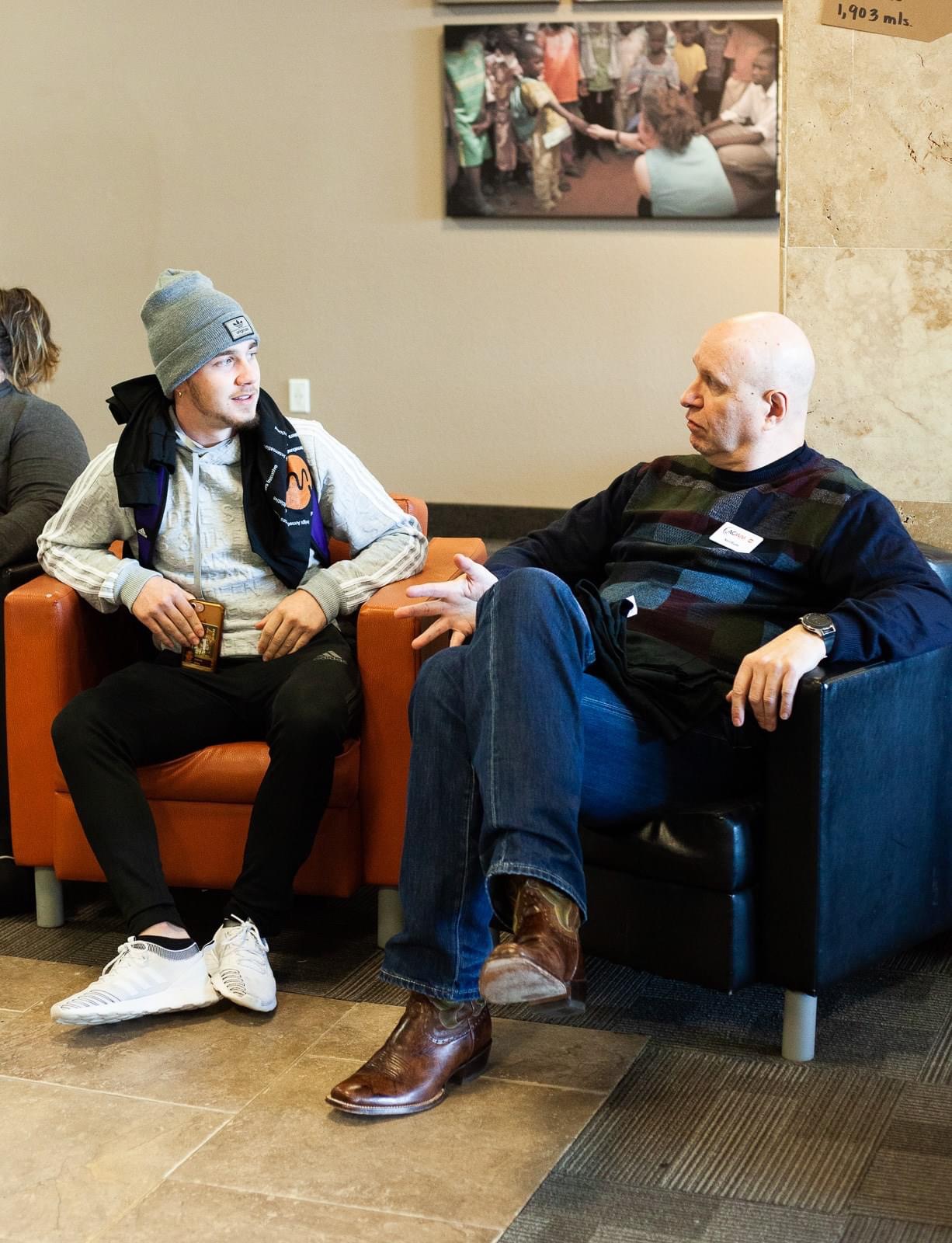
Through:
- annual visits to colleges and universities for missions emphasis events;
- participation in the World Missions Summit (a collaborative effort between Assemblies of God World Missions and Chi Alpha, the Assemblies of God university ministry);
- manning exhibits for International Ministries at the Assemblies of God General Council; and,
- involvement in many more events and trainings,
Neil advocates for Christ’s global cause and meets with those who have an interest in missions. Through the relationships which are formed, he invests in those who want to make an impact on the kingdom of God but don’t quite know how to do that or how to get started. In recent years, he has guided hundreds — perhaps even thousands — of people seeking God’s will, especially as it pertains to world missions.
Neil is a supporter of missionaries. He uses his varied background and skills to provide logistical support to missionaries and ministries involved in a wide variety of gospel-centered efforts.
This includes support for those focused on building Bible institutes and training centers, facilitating compassion ministries, reaching Muslims and the Jewish people with the gospel, providing online ministerial training and education in 150 different countries, publishing Christian resources in many languages, using technology for discipleship and evangelism, reaching out to oral learners, and providing ways for young children to discover a personal relationship with Jesus.

If you’ve read our pillar articles (which can be reached through the tabs at the top of the site if you are using a desktop or the three-bar/”hamburger” menu if you are using a mobile device), you know that our conviction is that all believers should be part of a team seeking to reach the unreached. Some will go, some will pray, some will provide financial support, some will provide logistical support — but all are called to give their lives to reach the nations.
If you want to be like Gaius and be a “fellow worker with the truth,” joining Neil’s team is a perfect avenue.
Here are three ways you can be a part of Neil’s team:
- You can pray for Neil and his family on an ongoing basis. The best way to stay informed of their prayer needs is by subscribing to Neil’s newsletter (visit his profile page in the Assemblies of God Missionary Directory and click on the Newsletter Signup button).
- You can support Neil and his family financially by signing up to support them on a monthly basis or to contribute a one-time gift at their online giving page.
- If you are a pastor or missions leader in your church, we would encourage you to get in touch with Neil to see how he might be able to encourage your people for the cause of missions and also to find out how you can be of service to him. By investing in Neil’s ministry, you will be investing in the ministries of 92 missionaries specifically assigned to International Ministries and to the thousands of missionaries who benefit from their ministries. If you are looking for a strategic, far-reaching opportunity to invest your funds for missions, we would highly recommend that you consider supporting Neil Ruda.
Join Neil Ruda’s team and be a fellow worker with the truth!
And then a fourth suggestion: we know Neil would be overjoyed if you would consider devoting your life to Christ’s global cause through one of the many opportunities available to serve with International Ministries.
WORKERS IN THIS ARTICLE: Neil Ruda
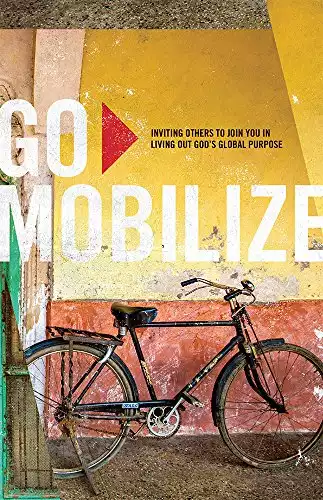
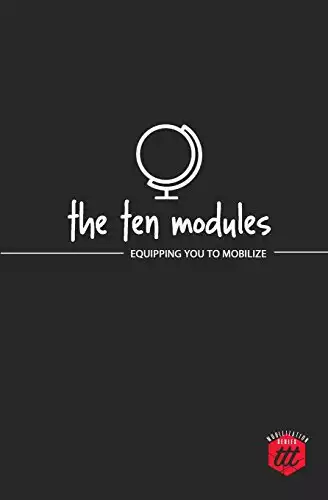

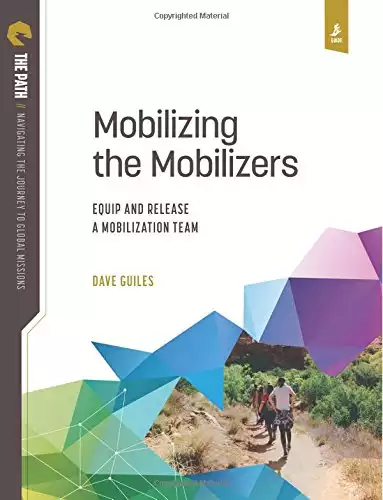

Leave a Reply